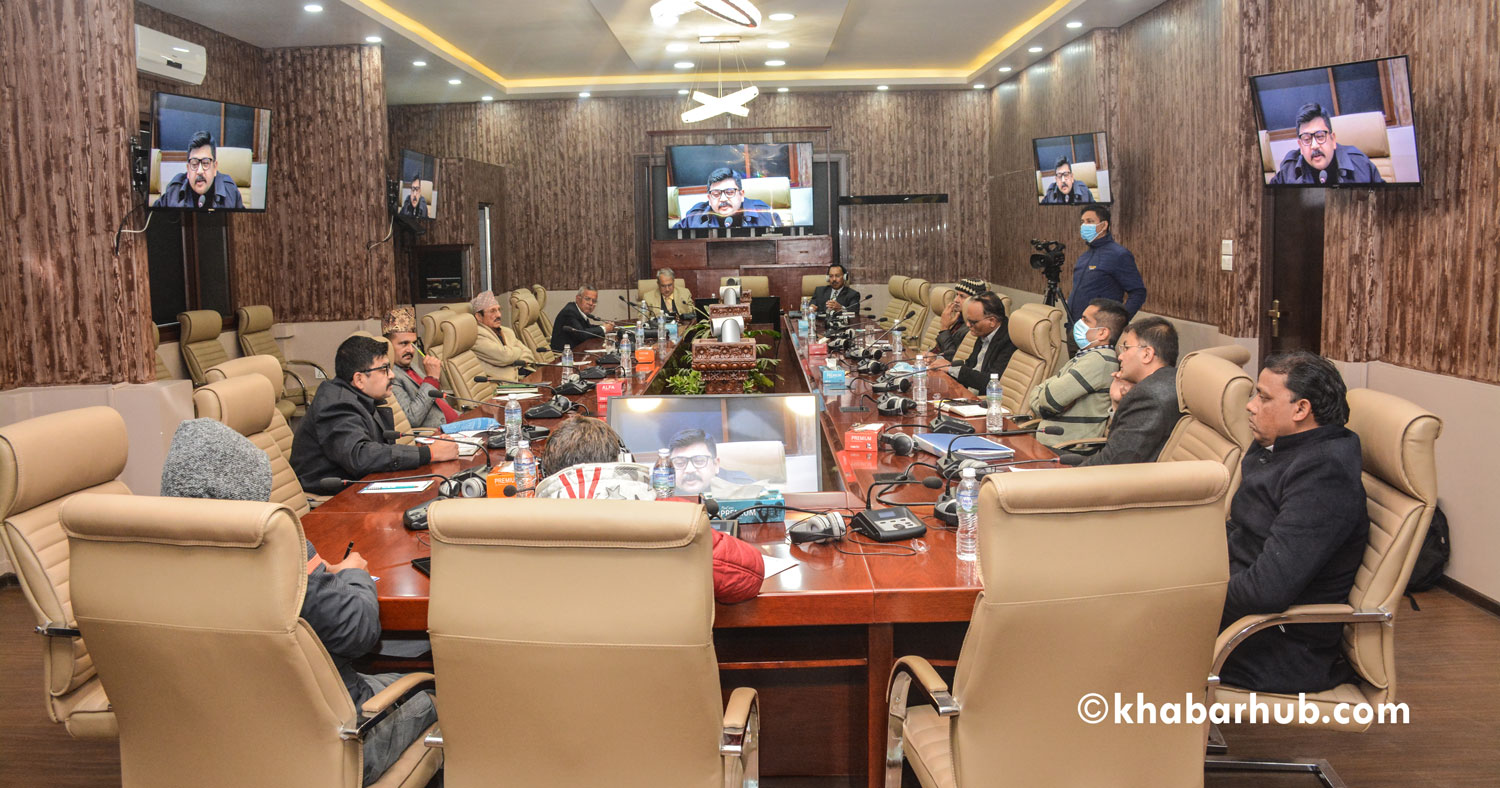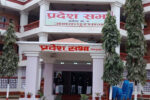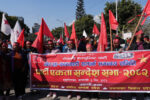KATHMANDU: At a time when information intended to mislead, misguide and spread propaganda on the United States grant Millennium Challenge Corporation (MCC) have been widespread, experts say the government should not delay in ratifying the MCC Compact at the earliest.
Taking part in the “Khabarhub Debate on MCC: Facts and Fictions” held at the Pavilion Hall in Durbar Marg, Kathmandu, on Monday, intellectuals, analysts and entrepreneurs said that the provision of getting MCC ratified from the parliament was to maintain transparency and make room for successful implementation of this infrastructure-focused development project.

They were unanimous to say that the MCC has been made a means to prove one’s ‘patriotic’ image and gain public attention overshadowing the genuine voices disseminating the authentic and realistic information.
Stating that scandal-mongers, knowingly in most cases and somewhere unknowingly, have led the issue to the verge of collapse, they hoped that MCC would be ratified for the good of the nation.

“In fact, there is absolutely no connection to any military strategy or any other,” said political and foreign affairs expert Arun Subedi, arguing that the country could even witness negative outcomes if Nepal failed to ratify the Compact.
He said strings were not attached to MCC, and failure to ratify the Compact would create a negative opinion about Nepal in the international arena. Subedi suggested the government move forward with the Compact in the parliament and endorse it since it has a political dimension.
“The parliament should endorse the MCC Compact at any cost,” he said, adding, that failure to ratify it will be unfortunate for Nepal and its people. Subedi also branded the protests against MCC as a “destructive mentality”.

Gyanendra Lal Pradhan, a hydro investor, said failing to ratify it will have a negative implication, hence, should be passed.
“This will have a negative impact on Nepal’s development efforts,” Pradhan argued, urging intellectuals and experts to speak when it comes to infrastructural development.
Pradhan dubbed the political debate on MCC as “political prostitution.”

Meanwhile, Dr. Govinda Raj Pokhrel, Nepali Congress central member, said there has been “consent manufacturing” on MCC.
“Political parties are playing a dubious role on the issue,” he said, suggesting that the issue should be debated in the parliamentary committees rather than outside.

Political analyst Devesh Jha said that MCC will be endorsed at any cost since Prime Minister Sher Bahadur Deuba, being a tactful politician, would convince other ruling partners on the issue.
Jha also said that the three-member task force led by Unified Socialist leader Jhalanath Khanal was just a hoodwink, which he said will suggest the government to ratify the agreement.
He also stated that the protests and disinformation an MCC have disillusioned the Nepali people.

Foreign Affairs expert Saroj Mishra labeled the anti-MCC rhetoric in Nepal as “ridiculous”.
Stating that the ongoing anti-MCC protests were China-provoked, Nepal should not worry about endorsing it at the earliest possible.

Damber Khatiwada, leader of Janata Samajbadi Party (JSP), suggested that all political parties need to be unanimous to ratify MCC for the sake of the country’s economic development.

Professor at Institute of Engineering Dr. Dinesh Sharma said MCC should be looked at through development perspective, not political.
“The protests are examples of deep political intervention,” he added.

Gopal Thapa, foreign affairs expert, Gopal Thapa said since the MCC Nepal Compact is a gift of the American people to the people of Nepal with the genuine intention of reducing poverty through economic growth, it should be endorsed without further delay.
“I am very much sure that it will be endorsed from the parliament,” he said adding, “The United States may not offer any aid or grant to Nepal in future.”
He also criticized “so-called intellectuals” for making shoddy comments and extreme views about MCC.

Prakash Dulal, a member of the Independent Power Producers Association of Nepal (IPPA), said MCC should be ratified on the basis of political consensus for the sake of the country’s economic development.

Ganesh Kumar Mandal, a Madhesi activist, raised concern over the anti-MCC rhetoric saying that it would have been endorsed had the political leaders “received” financial gains.

Semanta Dahal, an advocate, claimed that the MCA contract is in line with international law.
“There is nothing to worry about the legal side,” he said, adding, that the agreement between the MCC and the Nepal government was made with the latter agreeing to ratify it from the Parliament.

Assistant Professor at Kathmandu School of Law (KSL) Ashish Adhikari said the government should receive MCC from a developmental angle.









Comment